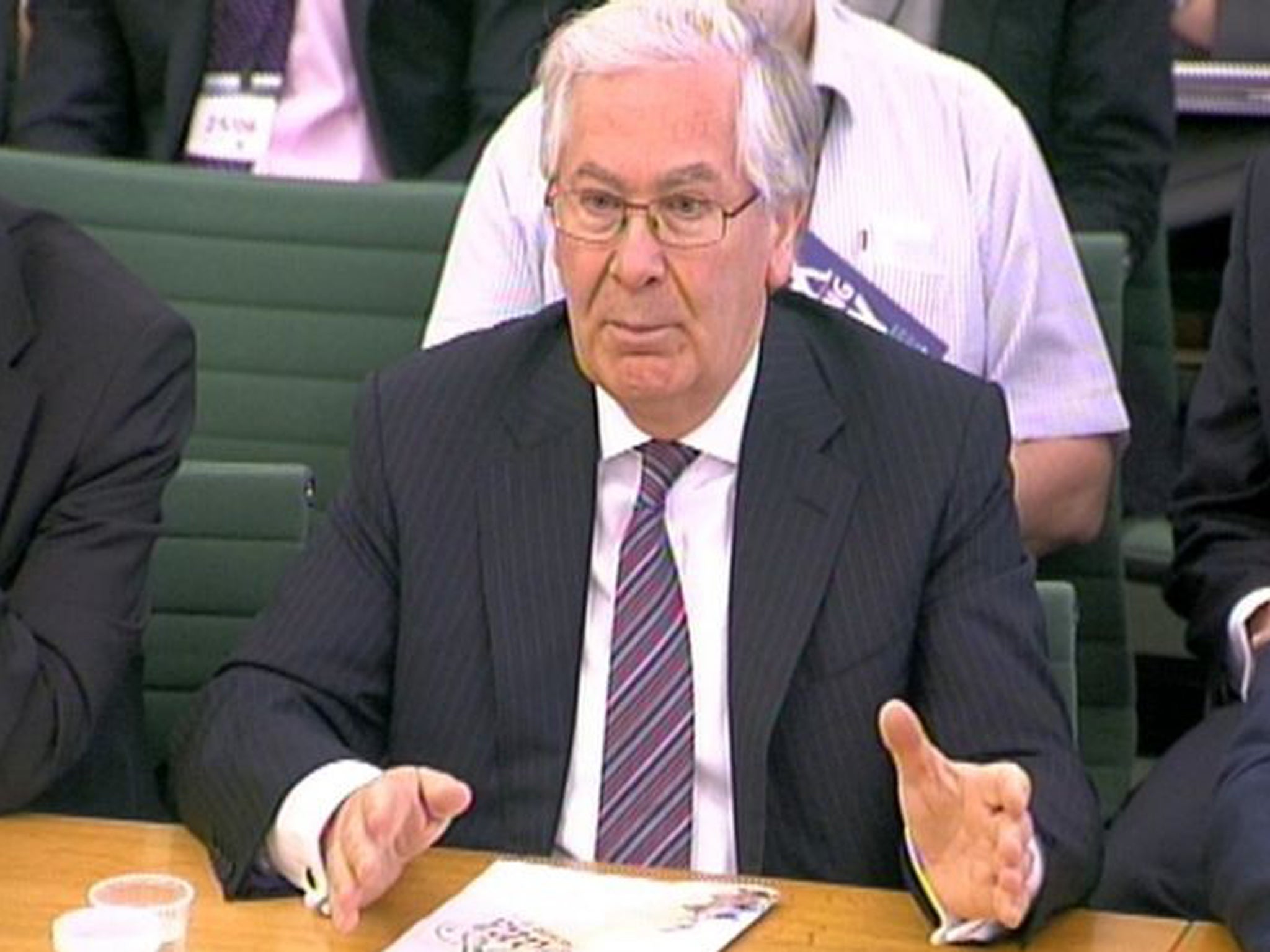Outgoing Bank of England Governor Sir Mervyn King accuses George Osborne of lobbying on behalf of banks to weaken regulation

George Osborne was challenged over whether he gave in to intense lobbying by bankers to force regulators to water down demands for banks to raise more capital to protect themselves against future shocks.
Sir Mervyn King, the departing Governor of the Bank of England, claimed that there were “certainly calls made to Number 11 [Downing Street] and even in some cases Number 10” to put pressure on the Prudential Regulation Authority [PRA].”
He told the Commons Treasury Select Committee that it was “very often it was the first response” of banks to call politicians after confidential discussions with regulators. He praised the PRA for maintaining its independence, suggesting the authority had not bowed to any pressure from Mr Osborne or David Cameron, but said such lobbying must stop.
The Bank of England told banks last week to find another £13.4bn to fill a higher than expected £27.1bn hole in their finances.
Later Andrew Tyrie, the committee’s Conservative chairman, urged Mr Osborne to look into Sir Mervyn’s claims. He said: “Representations of the views of banks are desirable. Attempts to influence the independent regulator are unacceptable. The Bank of England should make its judgments independently. The Treasury Committee will do what it can to ensure this independence is not compromised.”
Mr Osborne rejected suggestions that he gave banks any reassurances, but told MPs that banks must be allowed to “make their case”. He added: “If there’s unacceptable pressure, I absolutely say that is not acceptable. The PRA is completely independent and it’s made its independent decisions on capital in our banks. We empower our regulators to do their job.
Of course, banks, consumer groups, anyone else can make their case. But ultimately it’s an independent body that makes the judgment. That is the system we have created.”
Sir Mervyn appeared to be responding to an invitation in this month’s final report by the cross-party Parliamentary Commission on Banking Standards, also chaired by Mr Tyrie, to sound the alarm if lobbying took place. Mr Tyrie said he had done just that.
The commission said: “Politicians can be tempted to heed the blandishments of bankers and succumb to lobbying. This makes the regulators’ job all but impossible. No-one can tell whether or when these risks may emerge. But the danger remains.”
It added: “The Governor of the Bank of England is, by virtue of his responsibilities and independence, uniquely well-placed to sound the alarm if bank lobbying of government is becoming a concern. The Commission recommends that it be a specific personal responsibility of the Governor to warn Parliament, or the public, in such circumstances.”
Subscribe to Independent Premium to bookmark this article
Want to bookmark your favourite articles and stories to read or reference later? Start your Independent Premium subscription today.

Join our commenting forum
Join thought-provoking conversations, follow other Independent readers and see their replies